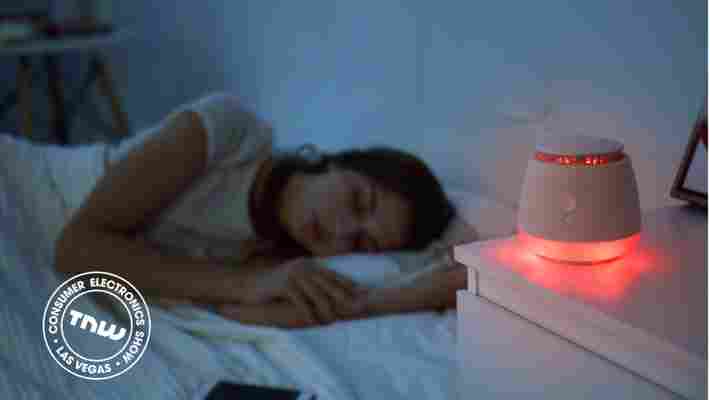I used to think there was a line in the sand. I thought there was a point where people would stop shoehorning computers and internet connectivity into devices that managed just fine without them for millennia.

Obviously, I was wrong. A brilliant example of this comes from Sleepace ; a startup from Shenzhen that focuses on how tech can help us get a restful night sleep. The company is at CES showcasing its DreamLife Smart Bedroom Solution technology, which integrates into your bed, and plays nice with Amazon Alexa and Google Home.
Yes folks, I’m talking about a smart bed. Truly, we are living in the future.
Hear me out though, because it’s actually really clever. Who here hasn’t gone to bed, and as you’re approaching the precipice of unconsciousness, been startled by the realization that you might have forgotten to turn the iron off, or you’d left the boiler running?
DreamLife solves that problem by sensing when you’ve climbed into bed, and then communicating with your menagerie of smart home devices.
If you’ve got enough WI-fi enabled gizmos littering your flat, it’s possible to configure it to handle your entire bedtime routine. So, when you pull the covers over yourself, Sleepace’s smart bedroom solution can switch off your TV, close your curtains, and turn up the thermostat.
Sleepace can also wake you up. If you’ve got a smart curtain rail, it can flood your room with natural light. It can also control devices like smart coffee makers, to ensure you’re sufficiently caffeinated first thing in the morning.
As a rule, if your smart home gadgets work with IFTTT, you can integrate it into your sleep schedule.
Sleepace’s sensors can be integrated into mattresses, pillows, and comforters. They also can monitor sleep quality; potentially offering a more comfortable alternative to other sleep-sensing devices, like wrist-worn wearables.
Sleep tech is a big thing. I’m not just talking about the deluge of high-end mattresses, like those from AmeriSleep, Simba, and Casper. There’s a deluge of monitoring devices and smart alarm clocks, all designed to help us get a good night’s sleep.
What I found most interesting about Sleepace is that it doesn’t just focus on sleep quality, but also on saving you time. At night, you can go straight to bed. You don’t have to scour your apartment for energy-leeching devices that you forgot to turn off. Similarly, it makes it easy for you to automate much of your morning routine.
For everyday punters, that means an extra few minutes sat in-front of the TV before going to bed, and a bit more time asleep before heading off to work.
